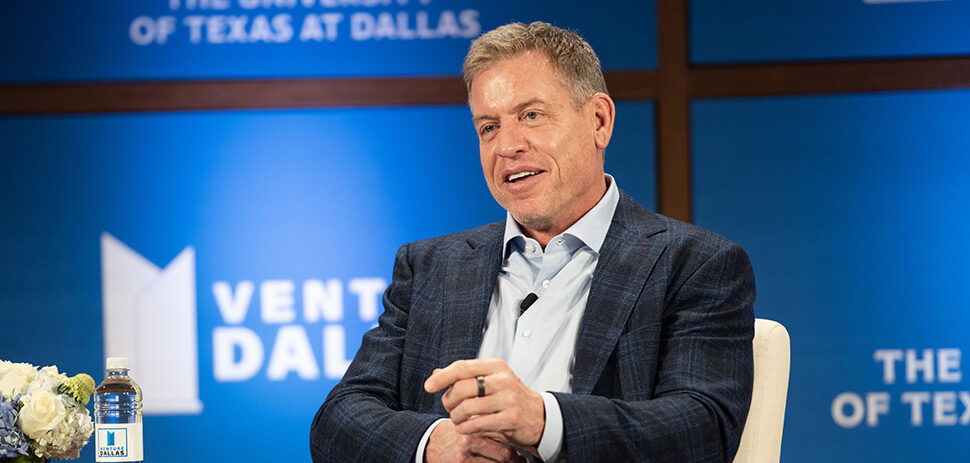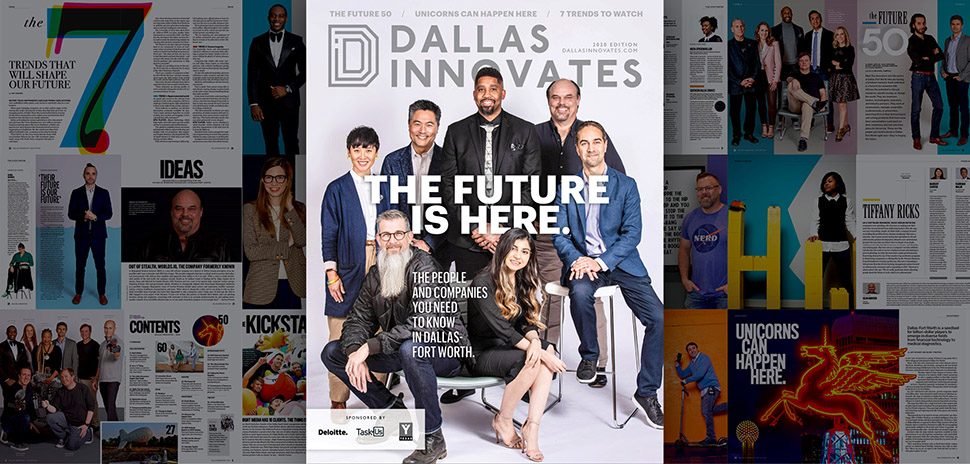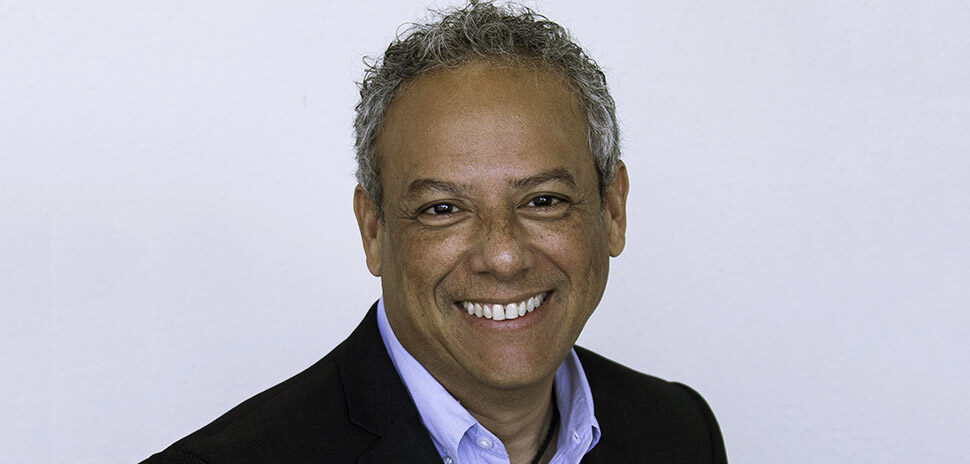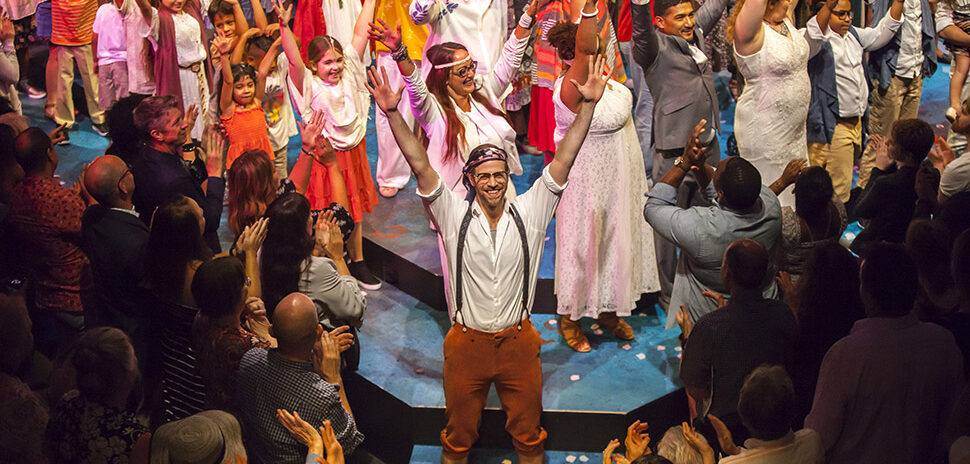Troy Aikman is a three-time Super Bowl winner, an NFL Hall of Famer, a sports broadcaster, and a successful businessman. But at the Venture Dallas conference last week, he revealed he’s something more than all those things. He’s also a father and a thoughtful practitioner of meditation and wellness, who believes having the right people around you is more important than having a great idea.
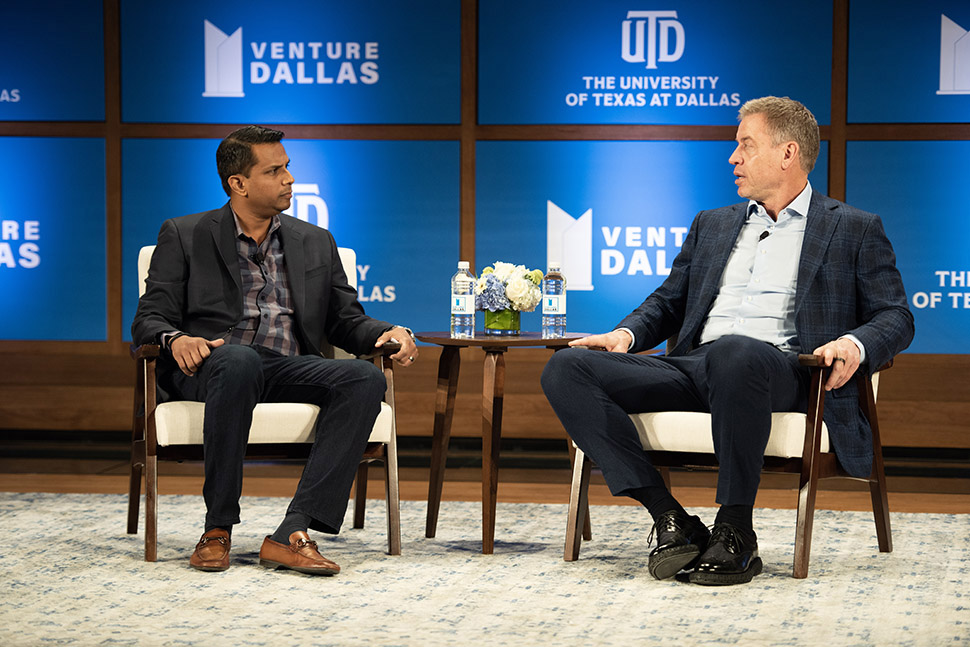
Ameeth Sankaran (left) and Troy Aikman
Aikman spoke at Venture Dallas in a fireside chat with Ameeth Sankaran, CEO of Religion of Sports. Here are takeaways from what Aikman said at the conference:
On how Cowboys legend Roger Staubach inspired his post-NFL career:
Roger Staubach, of course, preceded me on the football field. I had a chance to get to know him when I played, and what started as a friendship ended in a business partnership. And we’re still really close.
I always had respect for him as an athlete, but I had more respect for what he did after he retired. And he’s always been, I guess, the benchmark in so many ways since I arrived in Dallas at 22 years old. But definitely as far as what he was able to then go on and do when he retired from playing and building his real estate company.
I’ve always wanted to do something outside of sports, outside of being an athlete. Even my broadcasting career, as proud as I am of it and as busy as it keeps me, I still wanted to do something outside of sports.
I’ve been involved in a lot of different things over the last several years—in a NASCAR team, I was involved with San Diego Padres, I’ve been involved in the car business a couple of different times as well. I’m currently doing a lot of different projects in student housing.
And it’s really what ultimately led me to where I’m at right now with EIGHT Beer.
On being the co-founder of Austin-based EIGHT Beer:
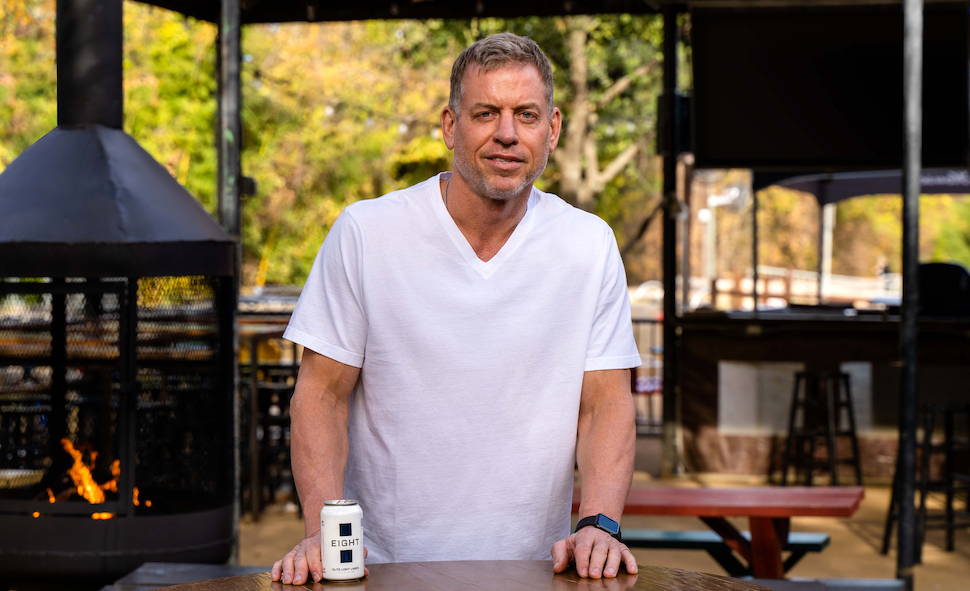
[Photo: EIGHT Brewing Co.]
I’ve had a relationship with the beer business for a good part of my life.
When I was 19 years old, I worked at a distributorship in Tulsa, Oklahoma, before I transferred to UCLA. I came to Dallas, became very close friends with the Andrews family, and they have beer distributorships throughout most of Texas. And then I’ve done some national campaigns as well.
So, I like beer. I’ve been involved in beer. I learned a lot about the industry when I not only worked on the trucks and serviced different accounts, but then also because of the relationship with the Andrews.
So, when [my partners and I] began talking about it, I said, “I think this is something that I’d be interested in, but it would need to be consistent with my lifestyle.” And so, therefore, it would have to be a light beer. I’m very mindful of what I put in my body and working out and health and wellness. So, that was fine with everybody. I said, “Okay, well then let’s go down that path, and can we do it differently? Can we do it better in our own way? And if we can do that, then. I’m all in.”
On partnering with Oregon State University to develop EIGHT:
They have a great beer program with their food and science department. It was two years in the making, and what makes EIGHT different and why it is so consistent with my life is that we have no adjuncts and no fillers. A lot of people don’t know that we’re the only widely available beer that can say “We don’t have adjuncts or fillers in our beer,” which means we don’t have corn/rice syrup or sugars.
I’m not going to sit here and tell you that beer is good for you. But if you’re going to drink beer, then EIGHT is the cleanest beer you can have. And we’re 90 calories and 2.6 carbs, if that’s important, which it is to a lot of people. [It’s] competitive with anything on the market—in fact, Ultra has 2.6 carbs but they have 96 calories, so we have fewer calories and have the same carbs. And it’s a cleaner beer without all the adjuncts and fillers.
I’m really proud of it and it’s resonated really well with the state—we’re exclusive to Texas. The response has been awesome. In fact, we just announced today we’re the fastest-growing independent beer in the history of the state of Texas, so it’s been pretty exciting.
On why he believes ‘there are no shortcuts’:
My approach to everything that I’ve ever done in my life—and it’s old school and it sounds very simple—I just always believed that there are no shortcuts.
And it’s one of the main reasons why for our beer, our tagline is “No shortcuts, no excuses.” Everything about EIGHT is consistent with my beliefs, my philosophy, and what I’m about, and that’s purposeful.
I didn’t feel like I was the best athlete growing up. But no one worked harder than I did. So that’s been my approach in broadcasting, it’s been my approach in business.
On why people are the most important thing in entrepreneurship:
Ultimately, we are all part of a team.
There are a lot of great ideas [and] concepts, but that alone won’t get you anywhere. It really comes down to people. Because I’ve been involved in some businesses and some technology that was game-changing, but we didn’t have the people who could execute the business.
Everyone comes at it a little bit differently. I think that if you polled people in this room asking, “Okay, what do you feel is the most important thing to have in success?” You’d find a lot of different answers. But for me, beginning with my playing career, I was surrounded by a lot of really good talented players. And my successes in business have been because I’ve been surrounded by a lot of really talented, smart people.
When I met my now partners at EIGHT, they were broke. I mean, they’re really brilliant people and I knew them and that’s why I continued the conversations. I said, “If you can get around really smart, talented people who are motivated, then I believe the sky’s the limit.”
Then it’s about making sure that you set a culture and you’re hiring like-minded people that have the same kind of drive and the same talent and the same intelligence that’s required. And I’m proud of the team that we have and it’s one of the reasons why we’ve been as successful as we’ve been.
On learning from failure:
There’s no doubt that setbacks happen. I obviously had them as an athlete, I’ve had them in business, everybody has. I think we oftentimes only read about the successes. Nobody wants to talk about their disappointments, and I’ve had my fair share. But I just try to learn from them and figure out why exactly it didn’t work. I don’t get as excited about the product or the technology. I bet on people.
On his philosophy about wellness, and why it’s about more than physical health:
My idea of health and wellness as recently as 15 years ago was that I always worked out. I’ve been a lifelong athlete, of course, and so I worked out every day. Some players when they retire, they get away from it. They’re kind of exhausted from the regimen of working out. I never did. I stayed committed to it. And to me, that meant I was healthy, and I was doing well.
But I’ve learned a lot. And now that part of it is so small in scope as far as why I feel now as healthy as I’ve ever been in my life. I’m happier than I’ve ever been. I feel better than I’ve ever felt. And the working out that I have been doing my entire life is just a very small component of that.
On the value of meditation:
I started meditating probably 10 years ago. And I read a book “10% Happier” that I came across when I was doing some research on something and it struck a chord with me. I followed Phil Jackson, read his book “Sacred Hoops,” and he talked more about Zen. And I got interested in it because he talked about a lot of things that resonated with me. I think that if there’s anyone on this planet who should be like the happiest guy in the world, it’s me.
I mean I’ve had a great life. I’ve lived out dreams of being a professional athlete. I’ve had great success since I got away from the game of football and being able to be a broadcaster. And a lot of athletes, a lot of professional athletes retire, and they don’t have something that really motivates them. I did right away.
And then I had my family and I got two amazing girls. But there was something that just was always kind of nagging at me and I don’t know what it was. And I just felt like, ‘Why am I not more content and happier?’ I wasn’t miserable or anything like that, but it was just this overriding feeling that I would have.
And so, meditation–I thought, well, maybe this is the answer. So I got into meditation and it’s been really, really good for me and I’ve learned a lot.
Had I been practicing [meditation] when I was playing [with the Cowboys], I would have been a different teammate. And I think I would have been a better teammate.
On what he learned during the pandemic:
Over the period of COVID, I was doing the meditations, but I really wasn’t certain how it was correlated in back into my life. I wasn’t experiencing the things that I was hoping to experience. And then I read this book “The Untethered Soul” by Michael Singer, right at the start of the pandemic, and it just kind of unlocked all the doors for me. And since that time, it all makes sense.
In addition, I became essentially a disciple of Dr. Mark Hyman. I know there’s people in this room who have heard him on Instagram. And I’ve read his books and I’ve learned so much about diet. I’ve made sleep an absolute priority. I take hydration really seriously. I carry around a half-gallon jug that I just fill up two or three times during the day.
If you don’t feel good, it’s hard to do good. And I believe that. So, I feel the best I’ve ever felt and I’m probably doing the best good that I’ve ever done.
On how that he’s changed his life without losing his edge:
I give myself more grace. I am not as hard on myself as I once was. I don’t demand perfectionism from me the way that I did, I think, because that’s helped me.
But as far as wanting to be great and wanting to compete and be the best at whatever it is that I’m doing or what we’re doing at EIGHT—none of that has changed at all for me. I haven’t lost my competitive edge at all.
On the Cowboys’ chances for a Super Bowl this season:
I’m a huge fan of Dak Prescott. I’ve been saying it probably too many times. But since I’m doing Monday night games, I don’t call as many Cowboys games. In fact, we won’t call another Cowboys game all year. So I can be a little more open as far as being a Cowboy homer.
I really like the team. I think they have a chance. They’ve got the ability to be one of those teams that could go all the way, the way that they’re playing.
I know for the Cowboys fans—I don’t know how many of them are here tonight—they’ve waited a long time, and maybe this will be the year.
There’s this tendency—I’m not in this category—for people to not want to see others have success because they think it’ll take away from the success they have. I find it to be quite the opposite. When we began to win in the ’90s, there was nobody happier for our success than Roger Staubach, because now they were talking about the ’70s Cowboys again because of the legacy that he had left. He talked about how it made him and his teammates relevant again.
And I’m ready to be relevant again.
Note: The interview above was edited for clarity and brevity.
![]()
Get on the list.
Dallas Innovates, every day.
Sign up to keep your eye on what’s new and next in Dallas-Fort Worth, every day.










